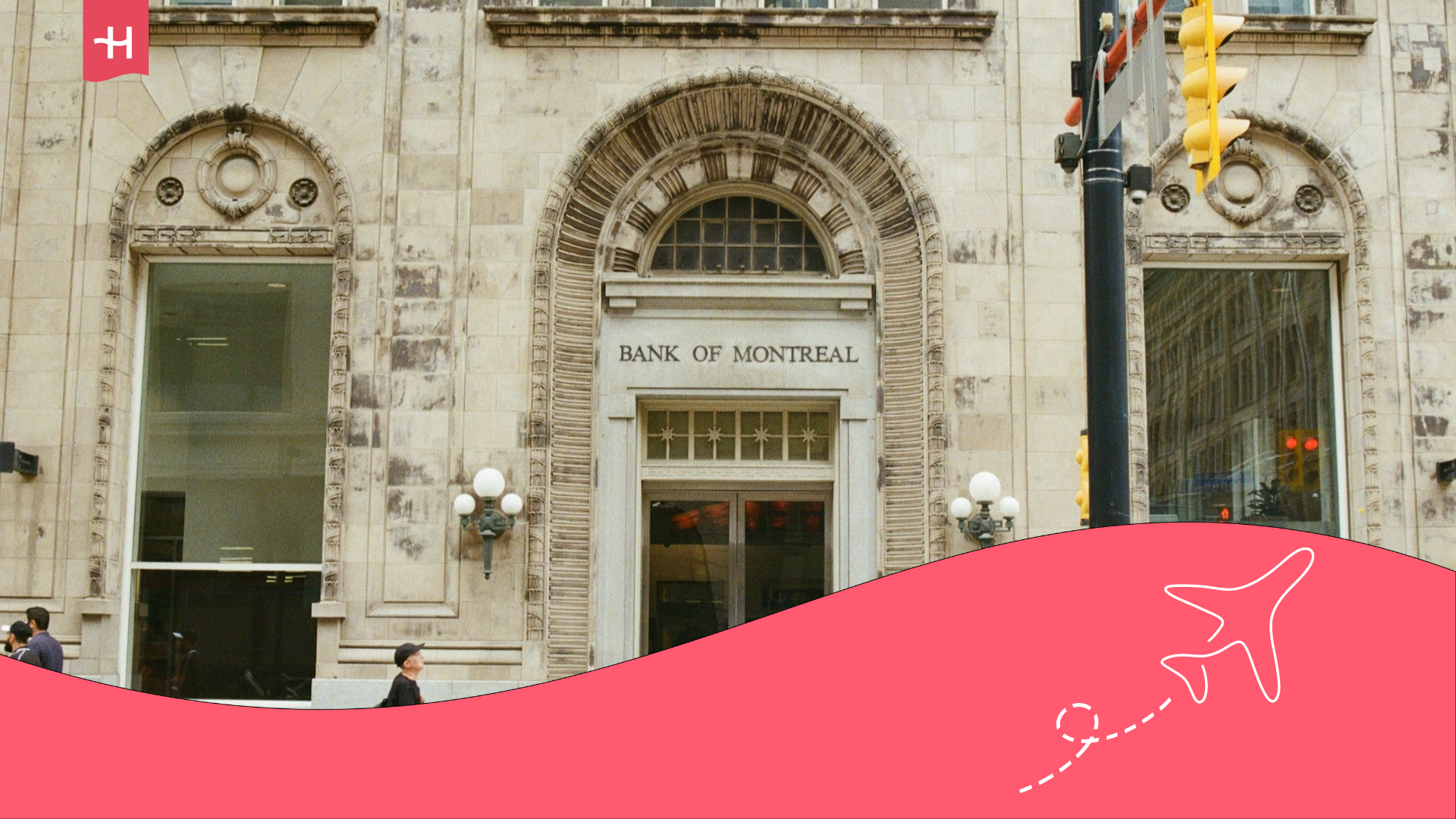Cost of living in Turkey: Food, transport, and more
Knowing the cost of living in Turkey in advance will help you plan your move and stay in this wonderful country. We tell you everything!
The cost of living in Turkey surprises many: It’s one of the countries where balance between quality and price remains possible, even during global inflation. From bustling cosmopolitan Istanbul to Antalya’s calm coast or Cappadocia’s magical landscapes, the country offers choices for every taste and budget.
Planning to move to Turkey, either permanently or just for weeks or months? Want to create a budget to organise your finances better? You’re lucky, because today we’ll tell you everything you must know to plan a move or a long stay in Turkey: How much it costs to rent a flat, eat out, travel between cities, get internet or visit the attractions of this beautiful country.
If you’re a student, digital nomad, or simply someone seeking a unique experience without spending a fortune, this article will help you see if Turkey is the right fit for your wallet.
How does housing impact the cost of living in Turkey?
One of the main factors influencing Turkey’s cost of living is accommodation prices. The good news is that, compared with other global cities, renting in Turkey stays affordable, even in central or touristic areas. Of course, there are marked differences between regions: Living in central Istanbul costs more than settling in Ankara, Izmir or a coastal town on the Aegean.
In recent years, tourism growth, digital nomadism, and the arrival of new foreign residents increased demand in some areas. This created a wide range of options, from traditional flats to modern colivings, student residences, and short-term rentals through Airbnb.
Let’s see how much it costs to live in different types of housing, what services are usually included, and which areas suit your lifestyle best:
Furnished flats: Comfort without complications
If you want independence and comfort, furnished flats are one of the most popular choices for people staying several months in Turkey. This option lets you move without worrying about buying furniture or appliances, since they usually include a bed, fitted kitchen, washing machine and, often, air conditioning.
In cities like Istanbul, Ankara, Izmir or Antalya, there’s wide availability in residential, central, or bohemian districts. For example, Istanbul areas such as Kadıköy, Beşiktaş, or Şişli offer good public transport connections, local life, and prices that vary depending on property condition and location. In fact, they’re among the best options for settling for a season in Turkey’s European capital.
If you look for flats on Turkey’s southern coast, such as Antalya or Marmaris, prices rise during summer season and drop sharply off-season. Living by the sea can be delightful, but timing matters to avoid overpaying.
Although prices rose slightly in recent years, you can still find one or two-bedroom flats at fair rates, especially if you rent for over three months or negotiate directly with local landlords.
| Property type | Monthly price (USD) | Monthly price (€) |
|---|---|---|
| Studio in outer area | $250–400 | €230–368 |
| One-bedroom flat in mid area | $400–600 | €368–552 |
| Two-bedroom flat in central area | $600–850 | €552–782 |
| Flat in touristic areas | $700–1,000 | €644–920 |
Average flat costs across different Turkish cities – @Shutterstock
Most rentals don’t include expenses like electricity, gas, internet or water, which usually add between $50–100 monthly (€46–92). However, some landlords offer fixed prices with services included, especially in new buildings or for long-term contracts. Always ask what’s included before agreeing to rent.
Coliving in Turkey: A growing trend among young people and digital nomads
Although the coliving concept is newer in Turkey than in Spain or Germany, cities like Istanbul, Izmir and Ankara have embraced it strongly. These are shared-living spaces designed for people who value cultural exchange and community life. That makes them perfect for digital nomads, remote workers, and international students, combining the privacy of a flat with shared common areas such as kitchens, lounges, terraces, and workspaces.
In Istanbul, the Kadıköy area on the Asian side, and modern districts like Şişli or Beşiktaş on the European side, concentrate much of the offer. Coliving spaces usually include all services in the price: High-speed internet, furniture, cleaning service, laundry, and even social events to connect with other residents. Some even add gyms, cafés, or rooftops.
As for prices, renting a room in a coliving in Istanbul can cost between $300–$600 per month (€276–€552), depending on the district, room type (private or shared), and included services. While it may look pricier than a traditional room rental, the real value lies in the community, the experience, and the peace of mind of having everything arranged from day one.
Student residences: A comfortable and affordable choice for those coming to study
For international students arriving in Turkey with a study visa, student residences are among the most practical and affordable options. They’re available at both public and private universities, and there are also residences managed by foundations or private companies, with different conditions and comfort levels.
Public universities usually provide shared dorms with shared bathrooms and communal kitchens. Prices are affordable, but availability is limited and demand is high, so applying early is essential. On the other hand, private residences offer more modern rooms, often individual, plus services like high-speed internet, study areas, laundry, dining halls, and 24/7 security.
Cities with the largest number of residences include Istanbul, Ankara, Izmir, and Eskişehir, the latter being popular among students for its youthful vibe and low cost of living. There are also residences near mid-sized city campuses, where prices tend to be lower.
| Residence type | Monthly price (USD) | Monthly price (€) |
|---|---|---|
| Public residence (shared room) | $80–150 | €74–138 |
| Private residence (shared room) | $200–300 | €184–276 |
| Private residence (single room) | $350–500 | €322–460 |
Student residence prices in Turkey
In most cases, the price includes all services. Private residences usually offer more flexibility on length of stay, making them a good temporary solution while searching for a flat or coliving.

How much does eating in Turkey cost? Supermarket prices and eating out
One of the most attractive aspects of Turkey’s cost of living is undoubtedly food: Eating well here doesn’t mean overspending. Turkish cuisine is diverse, tasty, and affordable, whether you cook at home or prefer dining out. In addition, street markets, neighbourhood bazaars, and traditional food stalls provide cheap and delicious choices at any time. Don’t miss our article on where to eat in Istanbul, with valuable tips for exploring Turkey’s capital through flavours.
In supermarkets like Migros, CarrefourSA, or A101, basic product prices remain stable, with seasonal fruits and vegetables often on offer. If you shop at weekly markets (pazar), prices drop even further while quality stays excellent.
Here’s a price overview updated to June 2025:
| Basic product | Price (USD) | Price (€) |
|---|---|---|
| Milk (1 litre) | $0.80 | €0.74 |
| Bread (500 g) | $0.50 | €0.46 |
| Eggs (12 units) | $1.80 | €1.66 |
| Chicken (1 kg) | $3.50 | €3.22 |
| Beef (1 kg) | $7.50 | €6.90 |
| Pasta (500 g) | $0.70 | €0.64 |
| Tomatoes (1 kg) | $0.80 | €0.74 |
| White cheese (1 kg) | $4.00 | €3.68 |
| Ground coffee (250 g): | $2.50 | €2.30 |
| Chocolate (100 g) | $1.20 | €1.10 |
Food costs in Turkey’s main supermarket chains
Eating out is also part of everyday life for many residents. From kebab shops to restaurants with daily menus, choices suit every budget.
| Food | Price (USD) | Price (€) |
|---|---|---|
| Traditional Turkish breakfast (outside) | $3.50 | €3.22 |
| Lunch set menu | $5.00–7.00 | €4.60–6.44 |
| Dinner at mid-range restaurant | $10.00–15.00 | €9.20–13.80 |
Average eating-out costs in Turkey
Eating out daily is still possible if you pick local places, especially in non-touristic districts or student areas. You’ll also find street food such as simit, börek, dürüm or gözleme for under $2 (€1.84).

How cheap is it to move around Turkey? Public transport, taxis, Uber and more
Transport is another big advantage when considering Turkey’s cost of living. Whether you live in a big city like Istanbul or a calmer place like Antalya or Bursa, you’ll find an affordable, well-organised public transport system adapted to residents’ daily needs.
Major cities have metro, tram, metrobus, ferries, and buses, all integrated into one fare system. Electronic cards like Istanbulkart, AnkaraKart or KentKart let you use all transport modes and recharge easily. Taxis are relatively cheap, and apps like BiTaksi (Turkey’s Uber alternative) or Martı for e-scooter and bike rentals make mobility even easier.
In university towns or tourist spots, dolmuş (shared minibuses) are practical and cheap, though they don’t always run on fixed schedules.
Transport prices in Turkey:
| Service | Price (USD) | Price (€) |
|---|---|---|
| Metro/bus ticket | $0.55–0.70 | €0.51–0.64 |
| Monthly transport pass (Istanbul) | $23.00 | €21.16 |
| Short taxi ride (about 5 km) | $2.50–4.00 | €2.30–3.68 |
| 1 litre of petrol | $1.45 | €1.34 |
| 1 kWh for electric car | $0.18 | €0.17 |
| Bike rental (per day) | $1.50–2.50 | €1.38–2.30 |
| Martı monthly subscription (e-scooters) | $12.00–15.00 | €11.04–13.80 |
Transport prices in Turkey
How much does it cost to own a car in Turkey?
Buying a private car isn’t impossible, but it brings higher costs due to taxes, fuel, and mandatory insurance. An economy car like Renault Clio or Fiat Egea costs around $15,000–$20,000 (€13,800–€18,400), depending on model and condition. On top, you must add compulsory insurance (Trafik Sigortası), around $200–$400 yearly (€184–€368), while comprehensive insurance can exceed $700 (€644) yearly.
If owning a car isn’t your plan, renting one to explore selected parts of the country can be a great idea. Driving in Turkey will let you discover stunning places.

What impact does healthcare have on Turkey’s cost of living?
When talking about Turkey’s cost of living, healthcare spending is usually lower than in most European countries. The country has a mixed healthcare system: Public, regulated by the SGK (Social Health Insurance), and private, with excellent clinics and hospitals often chosen by medical tourists from across the globe.
Turkish citizens and residents with a work contract automatically access the public system. Meanwhile, foreigners without residency or formal employment must purchase private health insurance, which is mandatory to obtain long-term residency or a student visa. For instance, if you travel from Spain for a long-term language course in Turkey, health insurance is one of the travel requirements you must meet.
Regardless of paperwork, note that although public hospitals in Turkey often have good infrastructure, waiting times can be long, especially in large cities. That’s why many foreigners prefer the private system, where appointments are quicker and doctors usually speak English. To enjoy these benefits, private health insurance is essential.
Medical care costs in Turkey (without SGK)
Check this table to see how much you’ll spend on medical care in Turkey if you don’t have health insurance:
| Service | Price (USD) | Price (€) |
|---|---|---|
| General medical consultation (private) | $20–40 | €18.40–36.80 |
| Basic dental consultation | $30–50 | €27.60–46.00 |
| Blood test | $10–$20 | €9.20–18.40 |
| X-ray | $15–30 | €13.80–27.60 |
| Appendicitis surgery (private) | $1.500–$3.000 | €1.380–€2.760 |
Approximate healthcare costs in Turkey
Private health insurance for foreigners
So, how much does health insurance in Turkey cost? It depends on your age, desired coverage, and pre-existing conditions. The good news: Many insurers provide international or local policies valid for obtaining Ikamet (residency). Companies like Allianz Turkey, Axa Sigorta, and Mapfre are popular among foreign residents.
For reference, here are average prices:
| Insurance type | Annual price (USD) | Annual price (€) |
|---|---|---|
| Basic for student visa | $100–200 | €92–184 |
| Comprehensive (residency + hospitalisation) | $300–600 | €276–552 |
| International nomad insurance | $50–$80 monthly | €46–€74 |
Health insurance costs in Turkey
How much does internet cost in Turkey? Mobile plans and home connections
Having a good connection at home and on your phone is key for remote workers, online students, or anyone who wants to stay connected. Within Turkey’s cost of living, this is one of the best value aspects compared with what you pay.
Turkey has strong telecom infrastructure, especially in urban areas. Main fixed internet providers are Türk Telekom, Superonline (Turkcell), and Vodafone, offering speeds from 16 Mbps up to 1000 Mbps (fibre optic).
Mobile coverage is broad, with three big carriers: Turkcell, Vodafone, and Türk Telekom Mobile. They all provide monthly plans with data, calls, and SMS for both residents and long-stay tourists.
Fixed and mobile internet prices (June 2025)
| Service | Price (USD) | Price (€) |
|---|---|---|
| Home internet 35 Mbps | $9.00–12.00 | €8.28–11.04 |
| Home internet 100 Mbps (fibre) | $15.00–22.00 | €13.80–20.24 |
| Prepaid mobile plan with 10 GB data | $6.00–8.00 | €5.52–7.36 |
| Postpaid mobile plan with 25 GB + calls | $10.00–14.00 | €9.20–12.88 |
| Prepaid SIM card (with 20 GB and minutes) | $10.00–13.00 | €9.20–11.96 |
Fixed and mobile internet costs in Turkey
Travelling to other countries? A Holafly monthly plan is your best ally
If you plan to base yourself in Turkey but travel around Europe or Asia without buying a new SIM each time, consider a Holafly monthly plan. For only €64.90 ($70), you’ll enjoy unlimited mobile data in over 160 countries, including Turkey. That way, you can cross borders and stay connected without paperwork, hidden costs, or bill surprises. Holafly is truly the best travel companion!
Important: If you are a frequent traveler and want to stay connected without worrying about expensive roaming or looking for a new SIM at every destination, Holafly’s subscription plans are for you. With a single eSIM, enjoy internet in more than 160 countries for a fixed price and no surprises on your bill. Travel without limits and connect easily and securely! 🚀🌍

What to do in Turkey? Activities, tourism, and prices to enjoy without overspending
Turkey is a gem for lovers of history, natural landscapes, and vibrant cultural life. In terms of leisure, the country offers so much that even long-term residents always find something new to discover. And the best part: many of these experiences are free or very affordable, helping balance the overall cost of living in Turkey.
From ancient museums to millenary ruins, turquoise beaches, impressive mosques, and lively markets, living in Turkey means having entertainment always within reach. Plus, cinema, theatre, concerts, and even dance or yoga classes usually cost far less than in many other countries.
Free attractions in Turkey: Art, history, and landscapes at no cost
While many tourist sites charge entry, countless experiences can be enjoyed for free. Some of the most recommended are:
- Hagia Sophia (Istanbul): Free entry since it became a mosque again.
- Bosphorus ferry ride: Accessible with transport card.
- Gülhane Park and Emirgan Gardens (Istanbul): Perfect for picnics.
- Blue Mosque (Istanbul): Free for visitors outside prayer times.
- Istiklal Street and Galata Tower (outside): Great vibe and architecture.
- Kadıköy Market: Colourful and cultural, you only pay for what you buy.
- Independence Museum (Ankara): Free entry.
- Mount Olympos (cable car paid, hiking free): Stunning natural views.
- Sunsets in Ortaköy district or Çıralı beach: Picture-perfect, free of charge.
- Derinkuyu Underground City (Cappadocia): Free to admire outside, entry ticket for inside.
Paid tourist attractions in Turkey: Updated entry fees
Here are some paid sites that are definitely worth visiting. Our advice: Reserve part of your budget to enjoy these spots or try some of the experiences listed below:
| Attraction | Price (USD) | Price (€) |
|---|---|---|
| Topkapi Palace (Istanbul) | $15.00 | €13.80 |
| Istanbul Archaeology Museum | $8.00 | €7.36 |
| Galata Tower | $10.00 | €9.20 |
| Pamukkale (site and pools entry) | $12.00 | €11.04 |
| Ancient city of Ephesus | $15.00 | €13.80 |
| Göreme Open Air Museum (Cappadocia) | $10.00 | €9.20 |
| Tahtalı Dağı cable car | $20.00 | €18.40 |
| Dolmabahçe Palace | $13.00 | €11.96 |
| Mevlana Museum (Konya) | $6.00 | €5.52 |
| Traditional hamam experience | $25.00–$40.00 | €23.00–36.80 |
Main paid attractions in Turkey
Conclusion: Is Turkey’s cost of living high?
The cost of living in Turkey remains one of the most affordable for people seeking quality without overspending. Whether you come to study, work remotely, or live for a season, you’ll find excellent value for money and lifestyle.
With cheaper rents than Western Europe, tasty varied food for a few dollars, efficient public transport, accessible healthcare, and cultural offers mixing ancient history with modern vibrancy, Turkey is becoming a top choice for digital nomads, expats, and students.
As always, your final budget depends on lifestyle and chosen city. Overall, Turkey provides everything for a good life: Modern infrastructure, safety, and a rich cultural immersion.

Cost of living in Turkey: Frequently asked questions
It depends on the city and lifestyle, but one person can live comfortably in Turkey with a budget of $700 (€644) per month if renting a room and living moderately. In Istanbul, the country’s most expensive city, the budget can rise to $900–1,200 (€828–1,104).
Cities like Izmir, Antalya, Bursa, and Eskişehir offer lower living costs than Istanbul or Ankara. They’re ideal for students or people seeking calm without leaving urban comforts.
Yes. The private system has excellent standards and affordable prices. It’s widely used by foreigners, especially in big cities, and many doctors speak English. Remember: Health insurance is mandatory to obtain residency.
Always pay in Turkish lira (TRY), since paying in foreign currency means worse exchange rates. The best practice is to carry an international card with good exchange rates or open a local account.





 Language
Language 


















 No results found
No results found







